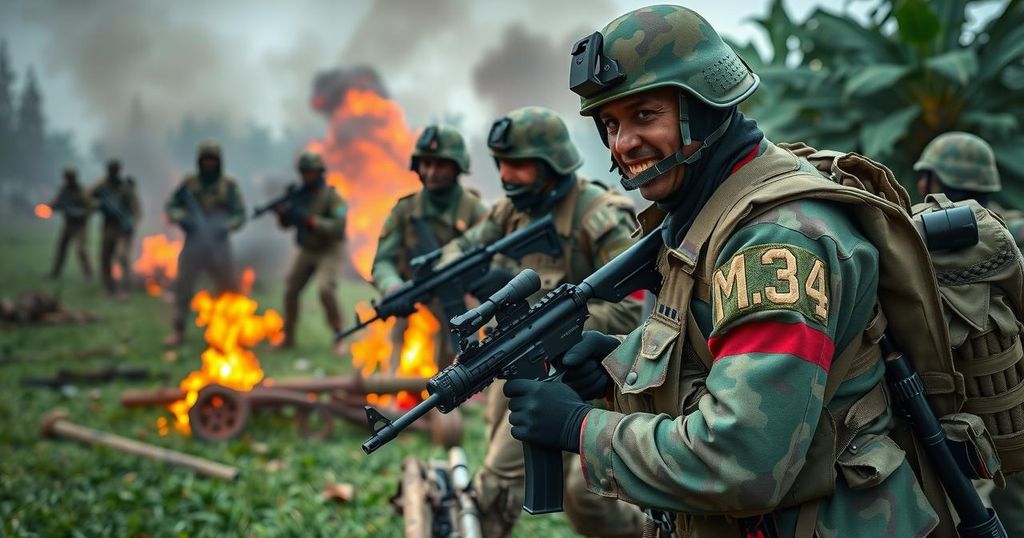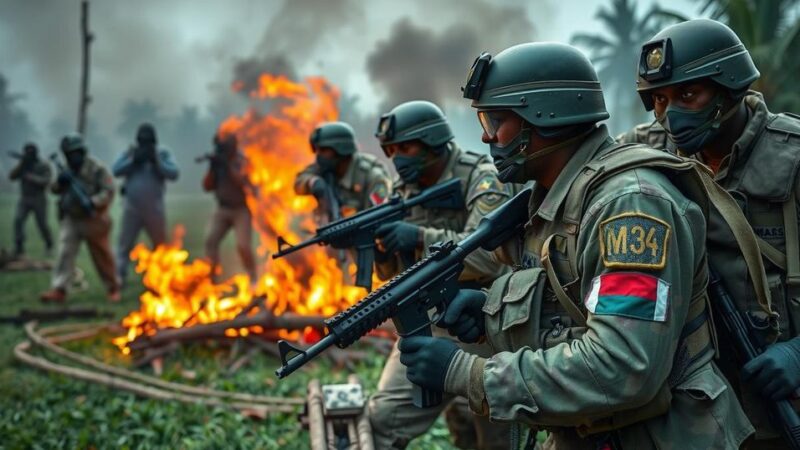In December 2024, over 290,000 individuals fled ongoing violence in North Kivu’s Lubero region, adding to a total of 2.7 million displaced in the province due to conflicts involving the M23 and ADF rebel groups. The humanitarian situation remains dire as clashes continue, particularly in Masisi, despite failed peace negotiations. Rwandan support for M23 raises concerns about regional instability and the civilian population’s safety.
In North Kivu, the humanitarian crisis continues to escalate, particularly in the Lubero region where extensive fighting erupted recently, leading to the displacement of over 290,000 individuals in December alone. The United Nations Office for the Coordination of Humanitarian Affairs (OCHA) reports that this has compounded the already alarming figure of 2.7 million displaced persons throughout North Kivu due to ongoing instability attributed to the M23 rebel group and other factions such as the Allied Democratic Forces (ADF). These conflicts have severely worsened the living conditions of the civilian population, exacerbating their vulnerability amid persistent armed confrontations.
The ADF, originally a Ugandan rebel faction, has been notable for its long-standing terror campaigns in North Kivu, particularly since its alignment with the Islamic State in 2019. Meanwhile, the M23 is identified as a group with Rwandan support, receiving both military resources and strategic coordination that have aided its territorial ambitions within eastern Congo. Reports indicate that support from Rwandan forces has been crucial for M23 in its engagements against the Congolese military, action that has further destabilized the region.
Recent clashes have shown that control over territories such as Masisi has been highly contested, changing hands multiple times between M23 insurgents and the Congolese army, which is presently reinforced by allied local militias. The tense situation in Masisi, located about 80 kilometers from Goma, remains precarious as M23 retains advantageous positions in the nearby hills, posing ongoing threats to both the city and the surrounding populace. The failure of peace negotiations in December has further complicated the situation, suggesting a bleak outlook for conflict resolution and stability in the area.
The ongoing conflict in North Kivu, a province in the eastern Democratic Republic of Congo (DRC), has deep historical roots, fueled by various armed groups, including the M23 and the ADF. The M23, a faction with ties to Rwanda, has sought control over significant territories, often engaging in violent confrontations with the Congolese army. The ADF, while originally from Uganda, has also caused widespread suffering and instability, particularly after its pledging allegiance to the Islamic State. The cumulative impact of these conflicts has resulted in a humanitarian crisis, with millions of individuals facing displacement and dire living conditions due to continuous warfare.
The situation in North Kivu underscores the fragility of peace and security in the region as armed conflicts led by groups like the M23 and ADF contribute to a worsening humanitarian disaster. With over 2.7 million individuals already displaced, the urgent need for effective conflict resolution strategies and humanitarian support is paramount. The international community’s attention is critical to addressing the ongoing challenges faced by the Congolese people and restoring stability in eastern DRC.
Original Source: www.fides.org







